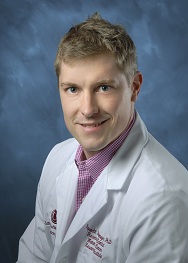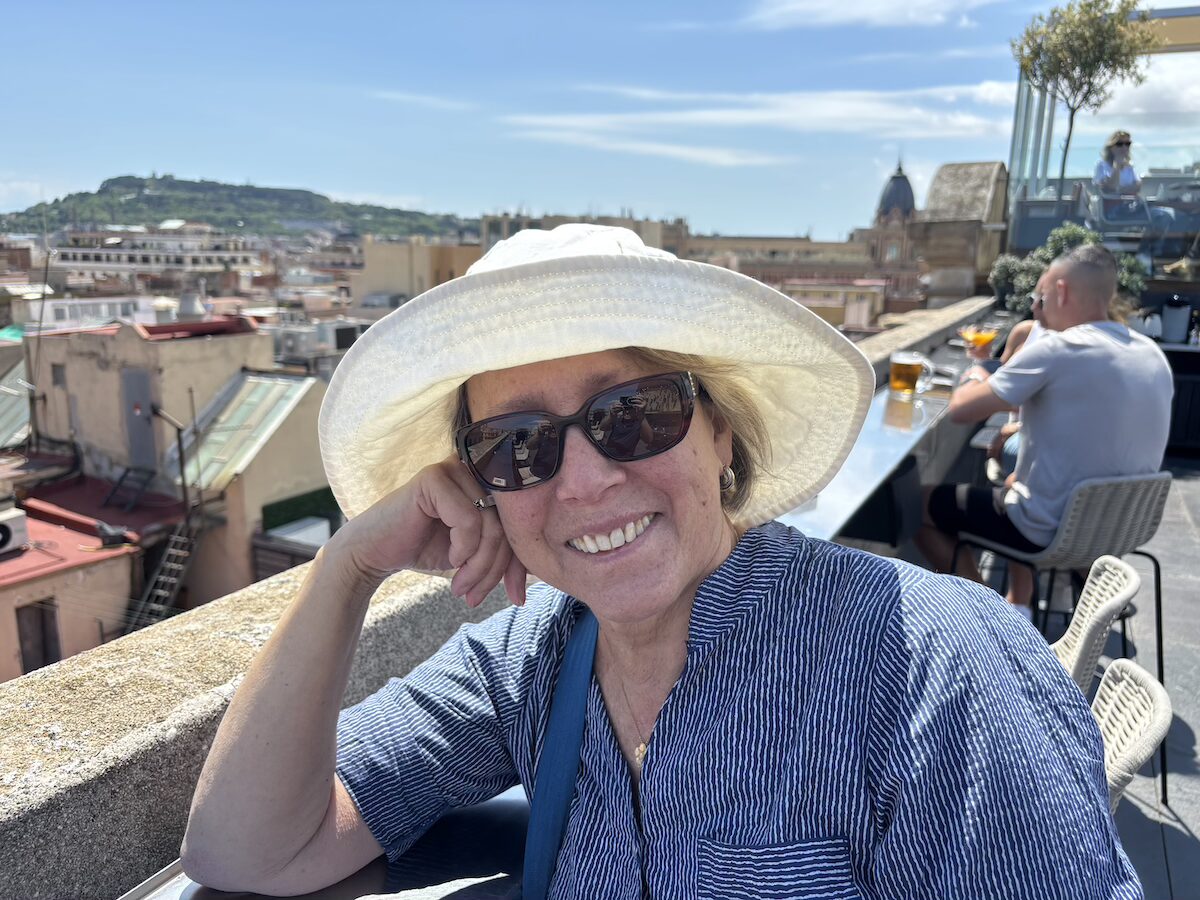
Dr. Ruprecht Wiedemeyer is a 2012 Liz Tilberis Grantee. In this interview with OCRF’s Sarah DeFeo, Dr. Wiedemeyer discusses his research and what it means to receive a grant from OCRF.
Sarah DeFeo: You were born in Germany. How did you end up working in the United States?
Ruprecht Wiedemeyer: I first came to the U.S. in 1985 on vacation with my family, and I immediately fell in love with it. I visited again a few years later and spent a year as an exchange student in a Michigan high school. After completing my college education and PhD in Germany, I returned to the U.S. for postdoctoral work at the Dana-Farber Cancer Institute in Boston. Toward the end of my postdoc, I met my future wife Amrita, who convinced me to move to Southern California. We now live in the beautiful city of Long Beach with our two boys (3 ½ years and 4 months old).
SD: When did you know you wanted to be a scientist?
RW: Ever since I was a small child, I have been interested in science. I grew up in rural Northern Germany, surrounded by lots of open space and a rich natural environment to explore. My first dream was to become a field biologist in zoology—I loved animals, kept lots of frogs, snakes, and spiders, and could identify every kind of bird I saw. Even today, I still have some poison dart frogs at home! As I grew up I discovered that I liked chemistry almost as much as biology, so entering the field of molecular biology and biochemistry seemed like a natural choice.
SD: What is your current research focusing on?
RW: My research focuses on identifying patterns of genetic alterations in cancer that determine its response to chemotherapeutic drugs. Ovarian cancer is a highly complex disease. Not only are there several different subtypes, which differ in biology and genetics, but even within each subtype there exists extensive heterogeneity. This makes the design of novel targeted therapies extremely difficult. If we can predict how cancer cells will react to target-specific drugs, it will become feasible to custom-tailor forms of treatment for individual cancers based on their inherent vulnerabilities. Given the complexity of ovarian cancer, this presents a daunting challenge. However, I believe that my training puts me in a position to contribute significantly to this field and hopefully to one day make a difference in the lives of patients.
SD: What’s it like to be an ovarian cancer researcher?
RW: We are a very privileged group: we get paid to pursue our passion, and at the same time get the chance to contribute to a common good. Science brings together enthusiastic people from different backgrounds and cultures and usually creates a rich and diverse workplace. For me, the collaborative and dynamic atmosphere of an academic environment allows me to stay open-minded and helps me avoid complacency. But I also like the everyday work of being a researcher – designing an experiment, interpreting the result and fitting it into the bigger picture. It’s hard for me to imagine doing something else.
SD: How do you think the OCRF grant will help you?
RW: The OCRF Liz Tilberis Scholars Award makes a huge difference, especially to a young principal investigator like me. Its three-year format and very significant funding amount have enabled me to get an ambitious new research project underway. The proposed project aims to track ovarian cancer evolution under the selection pressure of chemotherapeutic agents. This is a long-term endeavor that requires the establishment and maintenance of human cancers in immuno-compromised mice, which will be a valuable resource not only for this project but will likely be a pillar of my research for years to come. With the help from OCRF, our lab is poised to conduct highly innovative, cutting-edge science. I am thankful for OCRF’s generous support of my research.
Dr. Wiedemeyer received his undergraduate training in Germany and holds a doctorate degree in molecular cancer genetics. As a graduate student in Manfred Schwab’s laboratory at the German Cancer Research Center, he worked on the transcription factor N-Myc and cell death genes in the pediatric cancer, neuroblastoma. Towards the end of his Ph.D., Dr. Wiedemeyer received a Klaus Tschira stipend to pursue postgraduate studies in bioinformatics at the University of Karlsruhe, Germany. Upon completion of this training, he joined Lynda Chin’s lab at the Dana-Farber Cancer Institute/Harvard Medical School in Boston. As a postdoc in Dr. Chin’s group, he combined array-based profiling techniques, bioinformatics and biochemistry to characterize the genomes of malignant brain tumors (glioblastomas). In addition, Dr. Wiedemeyer took part in The Cancer Genome Atlas (TCGA) pilot project. Studying different types of cancer, the focus of his work has been on the molecular pathways that are recurrently altered across various forms of cancer. Of particular interest are genetic events that can predict the response of a tumor to chemotherapeutic agents. In his current project, Dr. Wiedemeyer will investigate the genetic changes that enable human ovarian cancers to become resistant to chemotherapeutic agents targeting specific cancer-relevant pathways.


